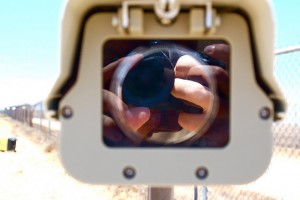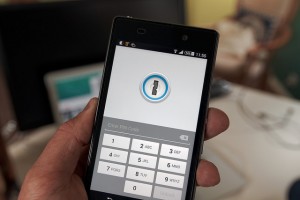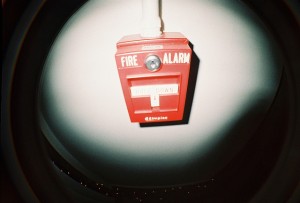 Comprehensive security systems are what help maintain a safe and secure work environment or home. As a consumer it is in your best interest to hire a systems integrator with experience, knowledge, and know-how, but how do you tell the good from the “just okay” or bad? Any company can spout off how many years experience they have or jobs they’ve completed, that doesn’t really give you much insight into how they operate and solve problems.
Comprehensive security systems are what help maintain a safe and secure work environment or home. As a consumer it is in your best interest to hire a systems integrator with experience, knowledge, and know-how, but how do you tell the good from the “just okay” or bad? Any company can spout off how many years experience they have or jobs they’ve completed, that doesn’t really give you much insight into how they operate and solve problems.
At Perfect Connections, Inc. our integrators are licensed and provide a more individualized approach to any security problem you may have. Many competitors will offer standardized solutions that may not fit your specific needs. They do this simply to increase profits without considering “what is it potentially costing my client?” Our team at Perfect Connections puts the customer first and we do so through our client services, problem solving techniques, and determination to get the job done right. We have been providing comprehensive security system solutions to homes and a range of businesses throughout northern and central New Jersey for the past 23 years. Our customer loyalty means the world to us, so without inflating our egos let’s look at what makes us stand out.
Some of the larger security systems companies out there will use a “one size fits all” mentality when it comes to system design. This is not an effective way to protect your business or home. Every establishment and home is unique with extraneous factors that pose different risks. Designing a comprehensive security system takes a customized approach.
You likely wouldn’t implement the same system configuration in an assisted living facility as you would a manufacturing plant, right? Right! You may use similar system components like a means of access control and surveillance, but their applications would be different and specific to their respective locations. At Perfect Connections we believe in performing on site risk assessments and listening to our clients’ concerns to help determine the design, layout, and components necessary to provide adequate coverage.
As with any technology, security systems are susceptible to imperfections. This could be imperfections in system components or imperfections caused by an external factor, like existing infrastructure disturbances. Often times when there are obstructions or architectural issues alarm system equipment may not function optimally.
In the event a system isn’t operating properly our team of licensed integrators will run tests on the equipment and find the root of the actual problem. Other companies act in haste and often times don’t look for the actual cause of the issue. Instead they’ll assume it’s a total system malfunction and tear the whole thing out and start over. This is a costly and inefficient problem solving method. Our team does their due diligence to solve the problem accurately and efficiently, and we won’t give up until the issue is resolved.
At Perfect Connections we believe a comprehensive security system includes access control, video surveillance, fire and burglar alarms, smoke and carbon monoxide detectors, home automation, and a monitoring service. These individual components together create a system that provide unmatched coverage for your home or business. As an independent alarm company we’re not limited to one manufacturer’s offerings, which allows us to use the components that will work the best in your specific application and that are most cost effective.
As licensed security system integrators our team has been providing solutions to businesses and homes throughout northern and central New Jersey since 1992. Our experience and continued education has enabled us to evolve to meet the changing needs of our clients. If you’re looking for an alarm system for your home or business know that you won’t be just another number at Perfect Connections.
If you live or run a business in Central or Northern New Jersey and would like information on any of the topics discussed above, please call 800-369-3962 or simply CLICK HERE.
 Assisted living facilities are dynamic environments. You have occupants with varying levels of medical needs alongside administrative, medical, and visiting personnel. It’s a somewhat complex security issue because residents and staff need to be able to move throughout the facility freely, but unauthorized entrants must somehow be kept out. The mental health and acuity of residents can also be a cause for concern. In an aging population medical conditions like dementia and Alzheimer’s can cause residents to wander off or get lost which is a major concern for staff and resident relatives. Thankfully by implementing security system solutions many of these concerns can be addressed.
Assisted living facilities are dynamic environments. You have occupants with varying levels of medical needs alongside administrative, medical, and visiting personnel. It’s a somewhat complex security issue because residents and staff need to be able to move throughout the facility freely, but unauthorized entrants must somehow be kept out. The mental health and acuity of residents can also be a cause for concern. In an aging population medical conditions like dementia and Alzheimer’s can cause residents to wander off or get lost which is a major concern for staff and resident relatives. Thankfully by implementing security system solutions many of these concerns can be addressed.
 When it comes to security systems you may have heard the term “edge technology,” “edge analytics,” or “edge devices.” What exactly do these terms mean and why are they important? When talking about security systems “the edge” is typically used when referring to video surveillance components. Every security system integrator and industry professional will likely have their own definition of what it means, but in summary “edge technology” refers to surveillance devices that operate, analyze, and record at their source versus transmitting all that information over a network to the system’s core. In traditional surveillance systems there is a central server where recorded data from peripheral devices is stored and analyzed. In an edge-based system cameras perform these functions locally.
When it comes to security systems you may have heard the term “edge technology,” “edge analytics,” or “edge devices.” What exactly do these terms mean and why are they important? When talking about security systems “the edge” is typically used when referring to video surveillance components. Every security system integrator and industry professional will likely have their own definition of what it means, but in summary “edge technology” refers to surveillance devices that operate, analyze, and record at their source versus transmitting all that information over a network to the system’s core. In traditional surveillance systems there is a central server where recorded data from peripheral devices is stored and analyzed. In an edge-based system cameras perform these functions locally. We use our smartphones and other mobile devices for many functions in our daily lives. It’s almost impossible to go through an entire day without seeing someone tapping, scrolling, or swiping through their phone, never mind using your own phone. We’ve created a mobile environment where convenience lies in the palm of our hands.
We use our smartphones and other mobile devices for many functions in our daily lives. It’s almost impossible to go through an entire day without seeing someone tapping, scrolling, or swiping through their phone, never mind using your own phone. We’ve created a mobile environment where convenience lies in the palm of our hands. When you’re starting any kind of project, what’s one of the first things you do? In all likelihood you go to your computer, smartphone, or mobile device and open up a search engine. You run search after search to find what you’re looking for. In our connected world of the IoT (Internet of Thing) we are, at least partially, reliant on what we can find online. You can find information on virtually anything. This includes anything from how to properly stain a deck to how to choose which security system integrator is the best.
When you’re starting any kind of project, what’s one of the first things you do? In all likelihood you go to your computer, smartphone, or mobile device and open up a search engine. You run search after search to find what you’re looking for. In our connected world of the IoT (Internet of Thing) we are, at least partially, reliant on what we can find online. You can find information on virtually anything. This includes anything from how to properly stain a deck to how to choose which security system integrator is the best. As a property manager you have a lot of people that depend on the safety and security of the real estate you oversee. Whether or not you own the properties you rent, or work with a landlord in managing their properties, a bulk of the responsibility lies on your shoulders. Your main goal is to attract responsible patrons, keep them, and build your brand. How can you do that if the property you oversee is publicly perceived to be too risky or unsafe? That’s the problem, if there has been an incident at a property that you own the public tends to remember and will likely steer clear of that address.
As a property manager you have a lot of people that depend on the safety and security of the real estate you oversee. Whether or not you own the properties you rent, or work with a landlord in managing their properties, a bulk of the responsibility lies on your shoulders. Your main goal is to attract responsible patrons, keep them, and build your brand. How can you do that if the property you oversee is publicly perceived to be too risky or unsafe? That’s the problem, if there has been an incident at a property that you own the public tends to remember and will likely steer clear of that address. Does your security system, or part of it, rely on your company’s internet network? Or are you considering a system that is at least partially dependent on network connectivity? If so, what happens if that network fails or is compromised? Fortunately nowadays the chances of your network dropping or losing connection is pretty slim, in fact the probability of most Internet Service Providers (ISPs) experiencing an outage is about
Does your security system, or part of it, rely on your company’s internet network? Or are you considering a system that is at least partially dependent on network connectivity? If so, what happens if that network fails or is compromised? Fortunately nowadays the chances of your network dropping or losing connection is pretty slim, in fact the probability of most Internet Service Providers (ISPs) experiencing an outage is about  Healthcare facilities pose a unique security situation. By nature they hold a lot of risk other organizations don’t necessarily have to deal with. Most healthcare facilities are open to the public and provide care for a vast array of people on a daily basis. Many facilities also house expensive and often sought after narcotics or medications. Also, recent changes to healthcare policies are having an effect on everyday operations and their implications may not be fully realized yet. These factors combined with the unpredictability of patient and public behavior make healthcare facilities particularly sensitive environments that require special attention when it comes to security.
Healthcare facilities pose a unique security situation. By nature they hold a lot of risk other organizations don’t necessarily have to deal with. Most healthcare facilities are open to the public and provide care for a vast array of people on a daily basis. Many facilities also house expensive and often sought after narcotics or medications. Also, recent changes to healthcare policies are having an effect on everyday operations and their implications may not be fully realized yet. These factors combined with the unpredictability of patient and public behavior make healthcare facilities particularly sensitive environments that require special attention when it comes to security. As with anything in the security systems industry, prevention is vital. Preventing catastrophic loss is a top priority and one of the most crucial security system components that helps avoid such situations is the fire alarm system. This is a no brainer, but there is some disparity between what type of fire alarm system is best. In the alarm industry there are basically two types of fire alarm installations, conventional and addressable (or analog addressable). As always, every situation and application is different therefore claiming one system is superior to the other may not be the right approach. However, it is important to understand the difference between systems and why one might be used over the other.
As with anything in the security systems industry, prevention is vital. Preventing catastrophic loss is a top priority and one of the most crucial security system components that helps avoid such situations is the fire alarm system. This is a no brainer, but there is some disparity between what type of fire alarm system is best. In the alarm industry there are basically two types of fire alarm installations, conventional and addressable (or analog addressable). As always, every situation and application is different therefore claiming one system is superior to the other may not be the right approach. However, it is important to understand the difference between systems and why one might be used over the other. Addressable fire alarms indicates that each installed device or module is connected to the main fire panel in a “
Addressable fire alarms indicates that each installed device or module is connected to the main fire panel in a “